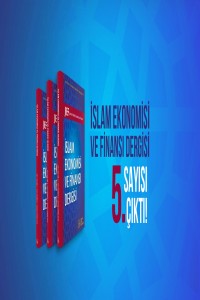Role of Islamic Microfinance Scheme in Poverty Alleviation and Well-being of Women Implemented by Islami Bank Bangladesh Limited
Abstract
Islamic microfinance programs have been used, for some time in Bangladesh, as an instrument to empower women and fight poverty. Women are specifically targeted by Islamic microfinance under the rural development scheme of Islami Bank Bangladesh Limited (IBBL), which provides interest-free-loans and many other benefits to the women groups involved.
The main aim of this paper is twofold: firstly, to check for a positive relationship between Islamic microfinance and the socio-economic welfare of women and secondly, to explore the perspective in which Islamic microfinance packages function in Bangladesh and how the system of their performance can be enhanced.
Based on a structured questionnaire survey, this study addresses two research questions:
(1) What should be anticipated from the program of Islamic microfinance provided by IBBL on the well-being of the beneficiaries.
(2) Under what circumstances would such a program be more useful?.
The main result of this study shows that the growth in women’s revenues and resources plays an important role in improving women’s financial freedom and sense of self-possession. However, a significant policy lesson from this study is that, it is essential to redirect Islamic microfinance to more sectors and more beneficiaries, in order to spread its benefits in the developmental activities, which will drive the contribution towards the well-being of the recipients and toward the socio-economic development of the country, in the long-run.
References
- Hassan, A.; Qamar, M; and Chachi, A. "Role of Islamic Microfinance Scheme in Poverty Alleviation and Well-being of Women Implemented by Islami Bank Bangladesh Limited", Journal of Islamic Economics and Finance,Vol.3, No.2, Autumn 2017.
Role of Islamic Microfinance Scheme in Poverty Alleviation and Well-being of Women Implemented by Islami Bank Bangladesh Limited
Abstract
Islamic microfinance programs have been used, for some time in Bangladesh, as an instrument to empower women and fight poverty. Women are specifically targeted by Islamic microfinance under the rural development scheme of Islami Bank Bangladesh Limited (IBBL), which provides interest-free-loans and many other benefits to the women groups involved.
The main aim of this paper is twofold: firstly, to check for a positive relationship between Islamic microfinance and the socio-economic welfare of women and secondly, to explore the perspective in which Islamic microfinance packages function in Bangladesh and how the system of their performance can be enhanced.
Based on a structured questionnaire survey, this study addresses two research questions:
(1) What should be anticipated from the program of Islamic microfinance provided by IBBL on the well-being of the beneficiaries.
(2) Under what circumstances would such a program be more useful?.
The main result of this study shows that the growth in women’s revenues and resources plays an important role in improving women’s financial freedom and sense of self-possession. However, a significant policy lesson from this study is that, it is essential to redirect Islamic microfinance to more sectors and more beneficiaries, in order to spread its benefits in the developmental activities, which will drive the contribution towards the wellbeing of the recipients and toward the socio-economic development of the country, in the long-run.
References
- Hassan, A.; Qamar, M; and Chachi, A. "Role of Islamic Microfinance Scheme in Poverty Alleviation and Well-being of Women Implemented by Islami Bank Bangladesh Limited", Journal of Islamic Economics and Finance,Vol.3, No.2, Autumn 2017.
Details
| Journal Section | Articles |
|---|---|
| Authors | |
| Publication Date | July 10, 2017 |
| Submission Date | May 8, 2017 |
| Published in Issue | Year 2017 Volume: 3 Issue: 1 |

